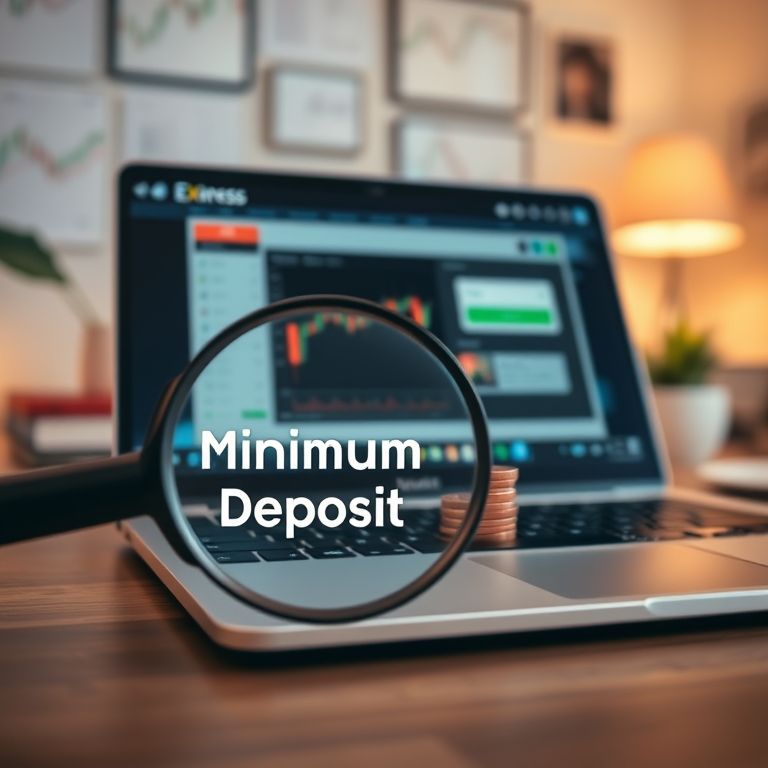Is Exness minimum deposit suitable for small traders?
Is Exness Minimum Deposit Suitable for Small Traders?
Introduction
For folks juggling a part-time gig, school budgets, or just dipping a toe into markets, the idea of a real-money account with a tiny deposit sounds appealing. Exness has pitched itself as approachable for small traders, offering a low entry point without sacrificing access to mature tools. But "low minimum" is only part of the story. You also want reliable pricing, smooth execution, a broad range of assets, and a path to growth as you learn. This piece breaks down what the Exness minimum deposit means in practice and how it lines up with the needs and risks of small, curious traders.

What the minimum deposit actually buys you
- Accessibility plus scope: A small initial funding opens the door to live trading, not just demo. It lets you test risk controls in real-time and see how the platform handles news events, volatility, and wrap-up days. On the flip side, a tiny balance can vanish quickly if risk isn’t managed—so the entry point is a starting line, not a finish line.
- Account variety with room to grow: Exness tends to offer account types that accommodate small deposits while still giving you access to real-time pricing, multiple order types, and scalable leverage. If your plan is to learn first, you can start small and migrate to a more feature-rich account as confidence builds.
Asset coverage and trading opportunities
- Broad spectrum: You can access forex pairs, major indices, commodities, and some stock CFDs, plus crypto and options in certain regions. For a small account, this mix means you can practice diversification—experimenting with a few core instruments before ramping up.
- Practical learning curves: The variety helps you stress-test your strategies across different markets—correlation, volatility, and liquidity dynamics become teachable in real time, which is invaluable for someone building a toolkit.
Costs, spreads, and execution
- Transparent pricing with caveats: Low minimum deposits don’t automatically mean zero costs. Spreads, swap rates, and instrument-specific commissions vary by product and account type. Small accounts tend to benefit from tight spreads in major pairs, but you’ll want to monitor rollover charges if you’re holding positions overnight.
- Speed and reliability: Execution quality matters more as you trade with real funds. A calm, responsive platform reduces the chance of slippage during busy sessions. For small traders, stability becomes a daily efficiency gain.
Reliability, safety, and support
- Regulation and safety: Check the broker’s regulatory status for your region and understand the account protection and withdrawal process. Strong customer support can be a time-saver when you’re navigating onboarding, verification, or any hiccups.
- Educational value: Many brokers offer tutorials, demo practice, and market commentaries. For a small trader, these resources convert a modest deposit into a systematic learning habit rather than a shot in the dark.
Prop trading, DeFi, and the evolving landscape
- Prop trading and smaller accounts: The broader market is seeing funded-trader programs and third-party capital partnerships become more common. While Exness itself is primarily a retail broker, the ecosystem around funded accounts can be an option for careful, well-prepared traders who want to scale beyond a tiny balance.
- DeFi and challenges: Decentralized finance introduces new liquidity layers and automation ideas, but it also brings governance complexity, risk of hacks, and regulatory uncertainty. For small traders, the lure is real but the risk management must be extra disciplined.
Smart contracts, AI, and future trends
- Smart contracts and automation: Smart-contract-based trading and automated strategies promise lower friction and 24/7 testing. The caveat is understanding code risk, backtesting rigor, and over-optimization traps.
- AI-driven insights: AI tools can help with pattern recognition and portfolio sizing, yet they don’t replace prudent risk controls. The smart move is to combine robust rules with data-backed experimentation.
Strategies and takeaways for small traders
- Start with a demo or a micro live app to refine your risk plan before committing more capital.
- Define a clear max loss per trade and per day; keep position sizes aligned to your overall risk tolerance.
- Track performance across instruments to learn how diversification versus concentration affects drawdowns.
- Stay aware of funding options and any funded-trader terms that might fit your growth path, but read the fine print on withdrawals, rules, and caps.
Promotional thought and slogan
Small deposit, big reach—start with Exness and grow your trading footprint with confidence.
In short, Exness’ low minimum deposit is a doorway, not a guarantee. It fits well for learning, practicing discipline, and exploring a diverse set of markets. If your plan is steady growth, careful risk management, and a willingness to adapt as you learn, the minimum deposit can be a sensible starting point in the evolving world of prop trading, DeFi’s challenges, and AI-powered market insights.